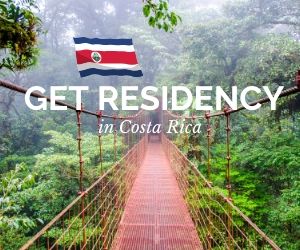1-Life...
Taking Spanish courses in Costa Rica (or Colombia) makes a great "excuse" to travel south. There are literally dozens of Spanish schools/immersion programs in the Valle Central de Costa Rica, some of which are a stone's throw from Gringo Gulch. Tuition isn't really expensive, and if your job requires Spanish proficiency, you might even be able to write off the costs at tax time.

Programs come in a couple flavors: For mongers, the three-four hours per day, M-F option is often the best, as it leaves you a significant amount of time to enjoy yourself. Plus, you'll meet a lot of non-pro ticas.

If you're more serious and don't need to mix language study with mongering, a full immersion program, including living accomodations with a Costa Rican family is a wonderful option. You'll speak Spanish every day, watch T.V. with the family, interact, and learn the culture as well as the language.
Fluency is not easy to achieve. I have been working more or less diligently for 40 years (!) to speak Spanish at the level I have now...a strong intermediate bordering on "superior," per the Foreign Service Institut's O.P.I. that I took a few years ago. Still, la effuerza vale la pena. The effort is worth it.
Here's a couple things you can do:
* Watch Univision or Telemundo on your local cable/satellite service, especially the news. You already watch the news in English, so you'll quickly understand the Spanish versions of the same news stories.
* Listen to local Spanish-language radio stations and try to understand announcements, commercials and song lyrics (tough!)
* Pick up a Spanish-language newspaper once in awhile. Like the T.V. news, you'll already be familiar with many of the current topics, and with the help of a dictionary, you will quickly build vocabulary.
* Do take a course at a local college, if you can manage the time, but don't expect miracles. Be sure to test for proficiency before choosing a course/level at which to begin. It can be either really boring (going over the same material you already have learned on CD) or frustrating ( you select a course far above your current proficiency).
* As C-dude wrote, if you have Latino friends, hang out with them and just listen. The problem with this is that many of the native Spanish speakers you will encounter in the U.S. will speak Spanish with their own dialects, slang and vocabulary, so you might not be learning "textbook Spanish."
One more thing: Did you know that our two favorite mongering destinations in C. and S. America are places where the "purest" Spanish is spoken? Colombia is considered to be nearly by-the-textbook, with Costa Rica only slightly more difficult to understand. The Spanish spoken in these two countries will be far easier to understand than Spanish as spoken in other places. For instance, many experienced, semi-fluent non-native Spanish speakers find it incredibly difficult to understand Cuban Spanish... so C.R. is a great place to study Spanish!

I wish you buena suerte (good luck) and I salute your determination to learn Spanish.











